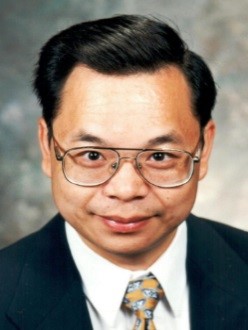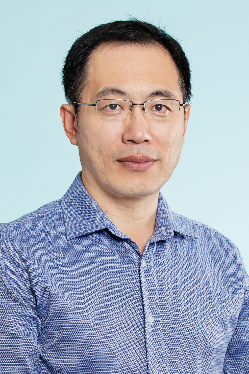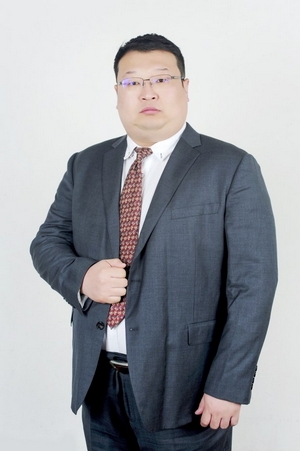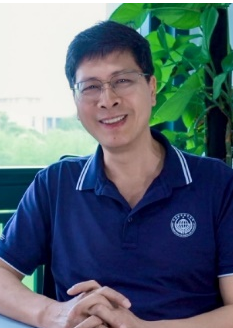
Prof. Simon X. Yang, University of Guelph, CanadaFellow of Canadian Academy of Engineering Research field: Robotics, intelligent systems, control systems, sensors and multi-sensor fusion, wireless sensor networks, bio-inspired intelligence and computational neuroscience.Simon X. Yang received the B.Sc. degree in Engineering Physics from Peking University, Beijing, China, the first of two M.Sc. degrees in Biophysics from the Chinese Academy of Sciences, Beijing, the second M.Sc. degree in Electrical Engineering from the University of Houston, Houston, TX, and the Ph.D. degree in Electrical and Computer Engineering from the University of Alberta, Edmonton, AB, Canada. Dr. Yang is currently a Professor and the Head of the Advanced Robotics and Intelligent Systems Laboratory at the University of Guelph, Guelph, ON, Canada. He is a Fellow of Canadian Academy of Engineering. Prof. Yang’s research interests include robotics, intelligent systems, control systems, sensors and multi-sensor fusion, wireless sensor networks, bio-inspired intelligence, neural networks, machine learning, fuzzy systems, evolutionary computation, intelligent agriculture, intelligent communications, intelligent transportation, and computational neuroscience. Prof. Yang has been very active in professional activities. He has been served as the Editor-in-Chief and Associate Editor of several international journals, and has involved in the organization of many international conferences. He was on the grant selection panel of NSERC, CIHR and several other grant agencies. |
|
| Prof. Ruili Wang, Massey University, New ZealandFellow of Engineering New ZealandResearch field: machine learning, computer vision, video processing, natural language processing and speech processingProfessor Ruili Wang is a Fellow of Engineering New Zealand, and served on the Marsden MIS Panel of the Royal Society of New Zealand from 2016 to 2018. From 2021 to 2024, he was listed as the world’s top 2 % of scientists by Stanford University. His research areas include machine learning, computer vision, video processing, natural language processing and speech processing. With more than 260 papers published, his h-index is 46. To date, he has successfully supervised more than 30 PhD candidates to completion. He is an associate editor and editorial members of journals including TMM and TOMM. |
Prof. Xiaojie Su, Chongqing University, ChinaIEEE Senoir Member Research field: Intelligent control systems, advanced control and system analysis, and application of intelligent robot controlLiu Shuai, male, born in 1982, Professor, Ph.D, Doctoral supervisor. His main research directions are intelligent educational technology, educationalinformation processing, etc. Professor Liu Shuai presided over and participated in the completion of several national science/social science funds, published more than 80 high-level papers in such journals as Inf Fus, Inf Sci, IEEE TFS/TMM/TITS/Re, and IEEE IOTJ, and was cited more than 6000 times in total. He was selected into the 2021-2023 World Top 2% Scientists List (Stanford University), and the papers were awarded the 2021 China's 100 Most Influential International Journal Papers (Institute of Scientific and Technical Information of China, 2022), etc. Professor Liu Shuai is an EAI Fellow, an outstanding member of the China Computer Federation, a senior member of the Chinese Institute of Electronics, a member of the CCF Education Special Committee, a director of the Hunan Computer Society/Artificial Intelligence Society, and a deputy director of the Education Working Committee of the Hunan Artificial Intelligence Society. |
|
| Prof. Xiangjian He, University of Nottingham Ningbo China, ChinaResearch field: computer vision, medical image analysis, and computer-aided healthcare based on large language models and deep learningProfessor Xiangjian He is a high-level national talent and has been listed among Stanford University and Elsevier's "World's Top 2% Scientists." Professor He is the leader of the Key Discipline of Computer Science and Technology and the Director of the Computer Vision and Intelligent Perception Laboratory at the University of Nottingham Ningbo China. He served as the Director of the Computer Vision and Pattern Recognition Laboratory at the Global Big Data Technologies Centre, University of Technology Sydney, from 2011 to 2022. He has played various chair roles for IEEE/ACM conferences including ACM MM, IEEE BigData, and IEEE ICPR. He leads a research team dedicated to research in computer vision, medical image analysis, and computer-aided healthcare based on large language models and deep learning. He has published numerous top-tier papers, including ESI highly cited papers and publications in prestigious journals and premier conferences. He has served on the editorial boards of multiple IEEE Transactions and Elsevier journals. He currently serves as Associate Editor for Springer-Nature Computer Science journal and Human-centric Computing and Information Sciences, among others. He has held visiting or adjunct professor positions at several universities including Shanghai Jiao Tong University, Hong Kong Polytechnic University, and the University of Georgia, USA, etc. |



